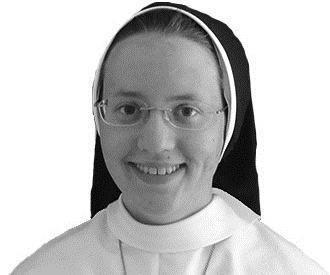“Do you realize what I have done for you?” (Jn 13:12). Resonating in this poignant question from Holy Thursday night is all the drama of the human story. Christ asked the question of His Apostles immediately after performing for them the work of a slave, washing their feet; but the events of that luminous Holy Thursday night have much broader implications.
Venerable Archbishop Fulton Sheen, famous TV and radio personality of the 1950s, taught how Christ’s washing the Apostles’ feet mirrors the whole Incarnation. Christ “rose from supper,” the Gospel account tells us, just as He got up, as it were, from the heavenly banquet of Trinitarian intercommunion to undertake His mission to humanity. He “took off his outer garments” — not His divinity but the glory of His divinity — and “took a towel and tied it around his waist.” In the culture of that time, the towel was the mark of a slave, and, by uniting our human nature to His divine nature and becoming man, Christ “emptied Himself, taking the form of a slave” (Phil 2:7). During His life on earth, He surrounded Himself with the marks of our slavery — experiencing human fatigue, sadness, loss, even death.
“He poured water into a basin,” foreshadowing the blood He would pour out the next day, spilling it in reckless abandon upon the guards who beat Him, the soldiers who scourged Him, the friends who stood beneath His cross, and the centurion who pierced His side. In that blood He washed away our sins, as He washed the Apostles’ feet, and when He dried them, they were new, just as our souls, cleansed in His blood, are also elevated to share God’s life.
Do we realize what God has done for us? No. But we begin to realize by doing it ourselves for others: “I have given you a model to follow,” Jesus said, “so that as I have done for you, you should also do.” We realize what He has done when we leave comfort and security to help someone in need or to speak the difficult truth to a friend. We realize what He has done when we humble ourselves to try to understand another’s perspective, when we give to the limits of our endurance or our patience — and then keep giving. We realize what He has done when we pray to see in another more goodness than he sees in himself.
And yet this kind of fortitude, humility, and charity seems above our human capacity. That is because it is. But there is one final twist: Christ’s question can also be translated: “Do you realize what I have done to you?” In His Incarnation, death and Resurrection, He has made us children of His Father, so that we do have the power, in grace, to love as He loves (1 Jn 4:19, Jn 13:34).
Sr. Maria Veritas Marks is a member of the Ann Arbor-based Dominican Sisters of Mary, Mother of the Eucharist.










